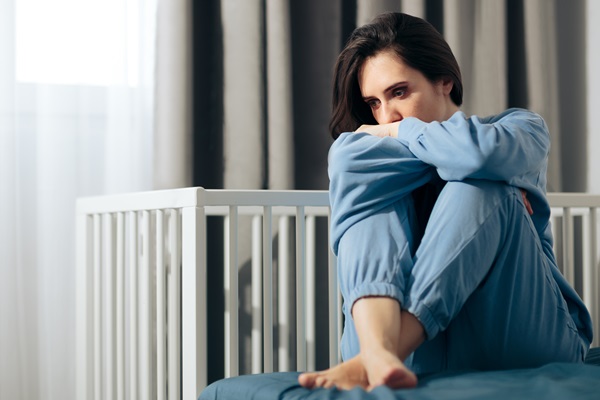New Study Sheds Light on Suicide During Pregnancy & After Giving Birth
Suicide prevention is a key part of preventing maternal deaths
It’s well-known that the United States has the highest maternal mortality rate of any developed country. Many of those maternal deaths are caused by physical health conditions related to pregnancy or complications during childbirth. However, maternal deaths by suicide also play a significant role, and a new study sheds light on the risk factors and possible prevention methods.
The risk of suicide is often elevated during stressful and transitional moments in life, and pregnancy is no exception. Medical providers, as well as partners and family members, need to do their part to protect women from suicide during this vulnerable time.
The study identifies key risk factors during the perinatal period
The study, conducted by researchers at the University of Michigan, looked at 1,150 women and girls who died during pregnancy or the post-partum period, either of suicide or of unknown causes. According to the researchers, key risk factors included:
- Intimate partner problems
- Depression, including postpartum depression
- Substance abuse
- Physical health problems
- Death of a friend or family member
Some demographic factors also played a role in the suicide risks examined by the study. The authors noticed that single mothers were more likely to die by suicide compared to married women. The authors also noted that low income and low educational attainment are correlated with an increased risk of intimate partner violence, which in turn increases the risk of suicide.
“This work suggests that pregnancy is a period of transition in people’s lives when preexisting factors that contribute to suicide risk can come together in various ways, in addition to social, psychological, and biological risk factors that are part of the perinatal period itself,” said study co-author Briana Mezuk, professor of epidemiology and director of the Center for Social Epidemiology and Population Health at the University of Michigan School of Public Health.
Loved ones and medical providers need to do their part to prevent maternal suicide
According to the 988 Lifeline, loved ones can help to reduce suicide risk in pregnant women and new mothers by:
- Asking and listening. Many mothers are afraid to speak up about their mental health symptoms or are so focused on the baby that they are unable to take care of themselves. They may also experience stigma and shame around mental health. That’s why it’s important to check in with loved ones, listen empathetically, and tell them it’s okay to talk about how they’re feeling.
- Know the facts. Mental health symptoms are the single most common childbirth complication, and they’re not the woman’s fault: they can be caused by biological, psychological, and social factors. Friends, family members, and professionals alike need to know the facts about maternal mental health when interacting with pregnant women and new mothers.
- Get help. Just like CPR, QPR is an emergency response to someone in crisis and can save lives. Question, Persuade, Refer (QPR) is the most widely taught Gatekeeper training in the world. QPR is the best source you can find to help a loved one (including our moms or moms-to-be) who may be at risk for suicide. See qprinstitute.com for more vital information on how to be a helpful friend, spouse, brother, or sister. Resources such as the 988 Lifeline, mobile crisis teams, and outpatient and inpatient mental health services are available to help mothers stay safe. These resources are the “R” part of QPR, but you have to know there is a problem first. You know there is a problem by asking (Q) questions. Asking someone about suicide will not put the idea into their head; they will be relieved you asked.
If you lost a loved one to suicide completion, we’d be honored to hear your story
In the aftermath of a preventable death by suicide, families deserve answers. The Law Offices of Skip Simpson holds negligent medical professionals accountable when they fail to protect mothers and other patients at risk of dying by suicide. If you have lost a loved one to suicide, our legal team would be honored to listen to your story, free of charge. Our firm is based in Texas and serves families throughout the United States.





